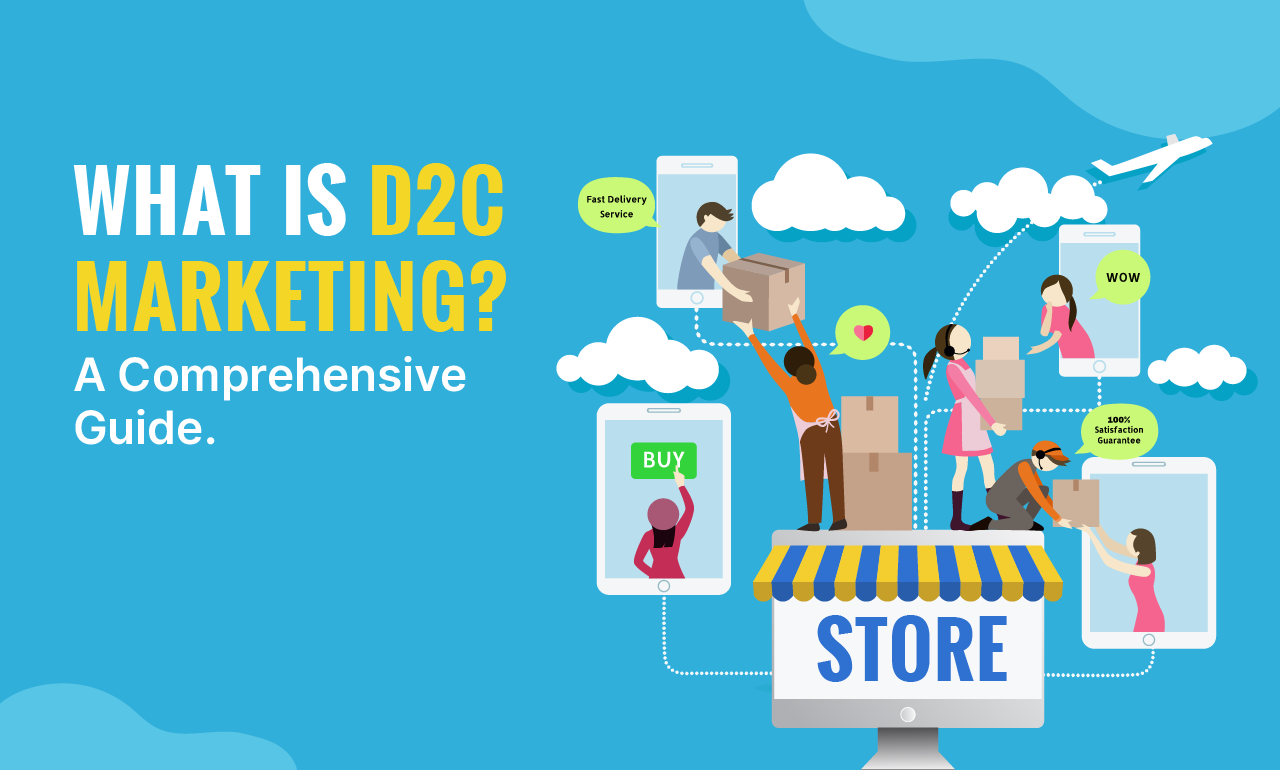What Is D2C Marketing? A Comprehensive Guide.

As 2024 begins, the outlook for Indian Direct-to-Consumer or D2C brands is optimistic. The expected projected growth rate is 40% in the upcoming years, with revenue expected to reach $60 billion by FY27, a significant increase from $12 billion in FY22.
The growth of D2C marketing relies on various factors. The rise of e-commerce, widespread adoption of online payments, and access to affordable internet have played key roles. However, several trends are expected to shape the future of this sector. Let’s explore the in-and-out of D2C marketing and how it ties into POS and related business tools.
Definition of D2C Marketing
D2C marketing is the process of selling products or services directly to customers without intermediaries like retailers or wholesalers. D2C companies sell through their own websites, social media channels, or dedicated mobile apps. Effective POS Billing Software and Inventory Management Software play a crucial role in enabling these businesses to manage their direct operations efficiently.
Benefits of D2C Marketing for Businesses
- More Control Over Branding, Messaging, and Pricing
D2C companies can craft unique brand messages, ensuring consistency across all channels, from websites to POS systems. This control also extends to pricing, where businesses can avoid markup costs from intermediaries. - Higher Profit Margins
Selling directly to customers enables businesses to maintain profit margins even while offering competitive prices. Efficient Billing Software aids this by automating transactions and inventory tracking. - Direct Communication with Customers
D2C brands can communicate with customers directly, gathering valuable feedback to improve products, services, and even their POS systems. - Valuable Data and Insights
POS systems and CRM tools integrated into Billing Software can help collect valuable customer data, including preferences and purchase histories. This enables highly targeted marketing campaigns. - Building a Loyal Customer Base
By combining digital marketing efforts with advanced POS technology, D2C brands can provide exceptional customer experiences, strengthening brand loyalty. - Quick Iteration of Products and Services
Feedback from POS and Inventory Management Software can help businesses quickly adapt to changes, such as adjusting stock levels in real-time based on customer demand. - Lower Marketing and Distribution Costs
Digital channels, combined with advanced POS Billing Software, reduce distribution costs, allowing D2C companies to focus their budget on customer acquisition. - More Control Over Inventory and Logistics
Inventory Management Software in POS systems gives D2C businesses greater control over stock levels, allowing them to respond swiftly to changes in demand.
Challenges and Limitations of D2C Marketing
- Building a strong online presence with user-friendly e-commerce and POS platforms.
- Upfront investment in technology like POS Billing Software and Inventory Management Software.
- Navigating legal issues such as consumer protection laws.
- Balancing customer acquisition costs with long-term sustainability.
Elements of a Successful D2C Marketing Strategy
A successful D2C marketing strategy includes:
- Clearly Defined Target Audience
Understanding customer demographics helps tailor product offerings and streamline POS processes. - Strong Brand Identity
Differentiation from competitors, reinforced by effective use of POS technology, ensures seamless customer experiences. - Data and Analytics Usage
Using POS data to track customer behavior and optimize marketing campaigns. - Leverage Social Media
Engage customers and direct them to your website or POS-equipped physical stores for purchases. - Optimizing the Website
Ensure the website integrates seamlessly with the POS Billing Software, making transactions easier. - Email Marketing
Use personalized emails based on data from POS systems to engage customers. - Focus on Retention
Retaining customers by offering loyalty programs through your POS system boosts long-term value.
Future Trends in D2C Marketing
- Hyper-Personalization: POS systems integrated with AI can offer personalized recommendations.
- Multi-Lingual Engagement: Enhanced by POS Billing Software, allowing for wider demographic reach.
- Sustainability Focus: POS systems help in tracking inventory sourced ethically.
Smoothen Your D2C Marketing Journey with QueueBuster
QueueBuster is a super app that streamlines all your business operations, offering top-notch POS Billing Software, Inventory Management Software, and more. Whether it’s managing customers, loyalty programs, invoices, or an online store, QueueBuster makes D2C marketing easier. Its features ensure cost-effectiveness, simplicity, and efficient inventory management.





